Filter by
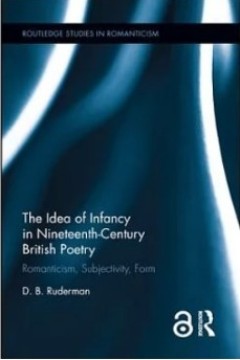
The Idea of Infancy in Nineteenth-Century British Poetry : Romanticism, Subje…
This book radically refigures the conceptual and formal significance of childhood in nineteenth-century English poetry. By theorizing infancy as a poetics as well as a space of continual beginning, Ruderman shows how it allowed poets access to inchoate, uncanny, and mutable forms of subjectivity and art. While recent historicist studies have documented the "freshness of experience" childhood co…
- Edition
- -
- ISBN/ISSN
- 9781317276487
- Collation
- 288 halaman
- Series Title
- -
- Call Number
- 800 RUD i
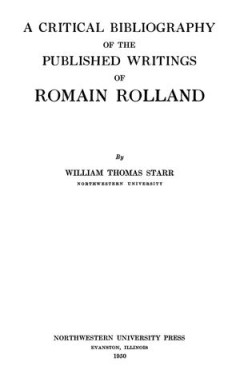
A Critical Bibliography of the Published Writings of Romain Rolland
Late nineteenth-and early twentieth-century French writer Romain Rolland remains best known for his epic coming-of-age tale, Jean Christoph. In A Critical Bibliography of the Published Writings of Romain Rolland William Thomas Starr Starr painstakingly collects the information on all writings by and about this prolific author through 1949. Organized into two parts, the bibliography lists the wr…
- Edition
- -
- ISBN/ISSN
- 9780810138711
- Collation
- 168 halaman
- Series Title
- -
- Call Number
- 800 STA c
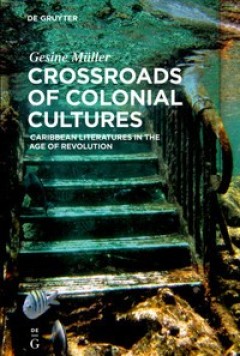
Crossroads of Colonial Cultures : Caribbean Literatures in the Age of Revolution
The study examines cultural effects of various colonial systems of government in the Spanish- and French-speaking Caribbean in a little investigated period of transition: from the French Revolution to the abolition of slavery in Cuba (1789–1886). The comparison of cultural transfer processes by means of literary production from and about the Caribbean, embedded in a broader context of the cir…
- Edition
- -
- ISBN/ISSN
- 9783110495416
- Collation
- 367 halaman
- Series Title
- -
- Call Number
- 900 MUL c
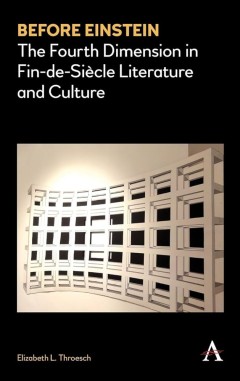
Before Einstein : The Fourth Dimension in Fin-de-Siècle in Literature and Cu…
Before Albert Einstein proposed the concept of four-dimensional spacetime, late Victorian scientists, radical philosophers and writers were discussing the possibility of a different kind of fourth dimension. Before Einstein offers the first book-length examination of the impact of pre-Relativity four-dimensional theory on literature and culture at the turn of the twentieth century.
- Edition
- -
- ISBN/ISSN
- 9781783086238
- Collation
- 222 halaman
- Series Title
- Anthem Nineteenth-Century Series
- Call Number
- 800 THR b
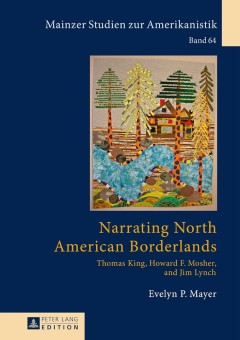
Narrating North American Borderlands : Thomas King, Howard F. Mosher and Jim …
The study centers on the presentation of the North American borderlands in the works of Canadian Native writer Thomas King’s Truth & Bright Water (1999), American writer Howard Frank Mosher’s On Kingdom Mountain (2007), and American writer Jim Lynch’s Border Songs (2009). The three authors describe the peoples and places in the northeastern, middle and northwestern border regions of the U…
- Edition
- -
- ISBN/ISSN
- 9783653983531
- Collation
- 227 halaman
- Series Title
- Mainzer Studien zur Amerikanistik, 64
- Call Number
- 800 MAY n
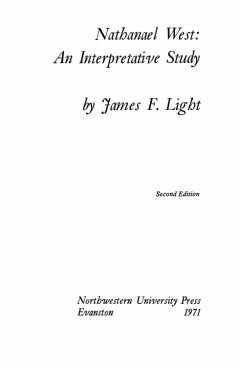
Nathanael West : An Interpretive Study
This study of the novels of Nathanael West begins with the important threads of West’s life and their relationship to his works. James F. Light gives a detailed analysis of each of West’s novels, investigating in particular the works’ treatment of social criticism and manipulation of dream and symbol.
- Edition
- -
- ISBN/ISSN
- 9780810139664
- Collation
- -
- Series Title
- -
- Call Number
- 800 LIG n
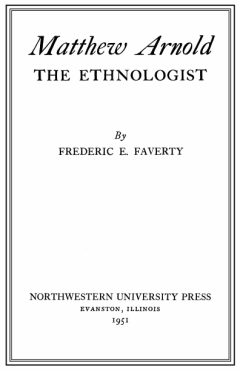
Matthew Arnold the Ethnologist
Matthew Arnold the Ethnologist, originally published in 1951, makes the original argument that the renowned English critic Matthew Arnold contributed to the climate of racialism current during his lifetime. Frederic E. Faverty shows that in his essays on national character, Arnold used anthropological concepts of race and language, albeit inconsistently. Faverty’s critique of Arnold draws par…
- Edition
- -
- ISBN/ISSN
- 9780810138391
- Collation
- 248 halaman
- Series Title
- -
- Call Number
- 800 FAV m
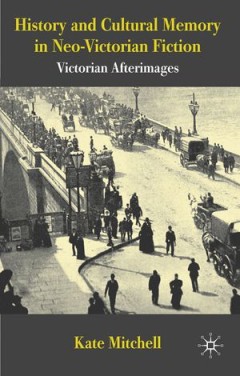
History and Cultural Memory in Neo-Victorian Fiction : Victorian Afterimages
History and Cultural Memory in Neo-Victorian Fiction combines innovative literary and historiographical analysis to investigate the way neo-Victorian novels conceptualise our relationship to the Victorian past, and to analyse their role in the production and communication of historical knowledge. Positioning neo-Victorian novels as dynamic participants in the contemporary historical imaginary, …
- Edition
- -
- ISBN/ISSN
- 9780230228580
- Collation
- IX, 222 halaman
- Series Title
- -
- Call Number
- 800 MIT h
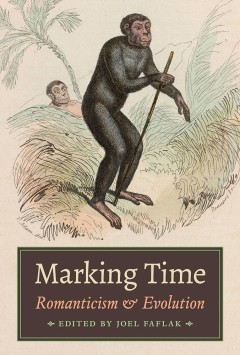
Marking Time : Romanticism and Evolution
Scholars have long studied the impact of Charles Darwin's writings on nineteenth-century culture. However, few have ventured to examine the precursors to the ideas of Darwin and others in the Romantic period. Marking Time, edited by Joel Faflak, analyses prevailing notions of evolution by tracing its origins to the literary, scientific, and philosophical discourses of the long nineteenth centur…
- Edition
- -
- ISBN/ISSN
- 9781442644304
- Collation
- 336 halaman
- Series Title
- -
- Call Number
- 800 MAR
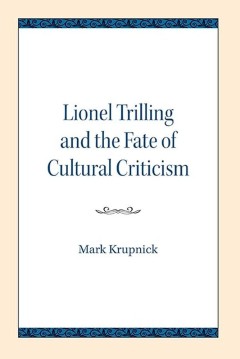
Lionel Trilling and the Fate of Cultural Criticism
Lionel Trilling was one of the twentieth century’s most widely read and influential American literary critics. Mark Krupnick traces Trilling’s career from the 1920s through the 1970s, following the shifting intellectual and ideological currents in his thought. Krupnick places Trilling’s criticism and fiction in the context of his New York intellectual group, illuminating the connection be…
- Edition
- -
- ISBN/ISSN
- 9780810139442
- Collation
- 216 halaman
- Series Title
- -
- Call Number
- 800 KRU l
 Computer Science, Information & General Works
Computer Science, Information & General Works  Philosophy & Psychology
Philosophy & Psychology  Religion
Religion  Social Sciences
Social Sciences  Language
Language  Pure Science
Pure Science  Applied Sciences
Applied Sciences  Art & Recreation
Art & Recreation  Literature
Literature  History & Geography
History & Geography